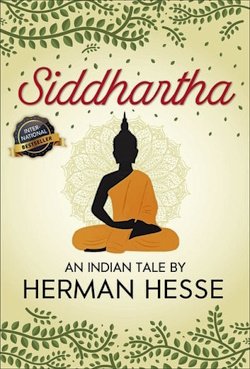212. From pleasure comes grief, from pleasure comes fear; he who is free from pleasure knows neither grief nor fear.
213. From affection comes grief, from affection comes fear; he who is free from affection knows neither grief nor fear.
214. From lust comes grief, from lust comes fear; he who is free from lust knows neither grief nor fear.
215. From love comes grief, from love comes fear; he who is free from love knows neither grief nor fear.
216. From greed comes grief, from greed comes fear; he who is free from greed knows neither grief nor fear.
217. He who possesses virtue and intelligence, who is just, speaks the truth, and does what is his own business, him the world will hold dear.
Compare Siddhartha’s view love with these verses. What is the philosophical difference between the two views?1
3. Arnold Toynbee indicates that the quest for enlightenment or Nirvana is an egocentric quest:
Love’s way of dealing with us is different from conscience’s way. Conscience commands; love inspires. What we do out of love, we do because we want to do it. Love is, indeed, one kind of desire; but it is a kind that takes us out of ourselves and carries us beyond ourselves, in contrast to the kind that is self-seeking—a kind that includes the desire for the “extinguishedness” of Nirvana. Love is freedom; conscience is constraint; yet, in two points, our relation to love is the same as our relation to conscience.
We are free to reject love’s appeal, as we are free to reject conscience’s command; yet love, like conscience, cannot be rebuffed with impunity. Rebuffed, love will continue to importune us; and this for the reason for which a violated conscience does. Love’s authority, like conscience’s, is absolute.
Like conscience, too, love needs no authentication or validation by any authority outside itself. Speculations about love’s credentials, or lack of credentials, cannot either enhance or diminish love’s absoluteness.2
First, which kind of love characterized by Toynbee is it that Siddhartha says was a necessary condition for his enlightenment? Second, do you 1.
Dhammapada: A Collection of Verses. Translated from the Pali by F. Max Muller. In Sacred Books of the East. Edited by F. Max Muller. Translated by Various Oriental Scholars.
Volume X, Part I.
2.
A. J. Toynbee. Experiences. Oxford: Oxford University Press, 1969.
Siddhartha: An Open-Source Text
127
Chapter 12. Govinda
think Toynbee is mistaken that is the desire for Nirvana is not “the kind of desire that takes us out of ourselves and carries us beyond ourselves”?
4. Could Siddhartha have reached enlightenment without his varied history? He states, “. . . I needed sin very much, I needed lust, the desire for possessions, vanity, and needed the most shameful despair, in order to learn how to give up all resistance, in order to learn how to love the world, in order to stop comparing it to some world I wished. . . ” In this manner, Siddhartha claims he understood the perfection of the world.
5. In what ways is Henry David Thoreau’s observation that “The unconsciousness of man is the consciousness of God”3 explicated in this chapter?
3.
Henry David Thoreau. The Writing of Henry David Thoreau. New York: Houghton Mifflin, 1906. Vol. 1, 371.
128
Siddhartha: An Open-Source Text
Index
death, 74, 97
and lust, 70
desire, 23, 29
Agni, 125
despair, 85
alms, 23
Dhammapada, 126
appearance, 20
discontent, 9
(see also Maya)
DocBook, ii
as reality, 34, 42
Dogen Kirgen, 116

























